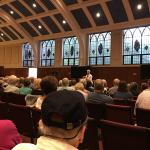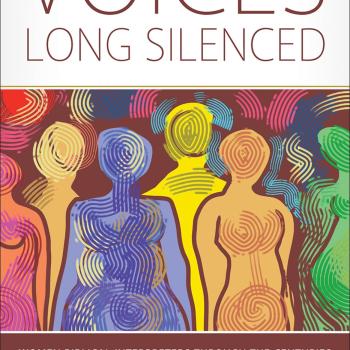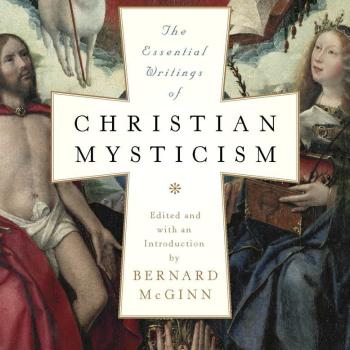A reader of this blog, who is currently the member of a Protestant church but is considering becoming a Catholic, asked me to recommend a few books to him. One of the ones I suggested was Richard Rohr’s Why Be Catholic? Apparently, he decided to check out Richard’s online reputation, because he wrote back to me and asked me this:
What’s the Catholic Church’s view on Richard Rohr? When you Google him there’s a lot of controversy.
This is a wonderful question, because it really has two parts. First, the reader is asking me how does the Catholic Church deal with its prominent teachers, especially when their message is controversial. The second part of the question, of course, concerns one particular author, the popular Franciscan contemplative speaker and author, Richard Rohr.
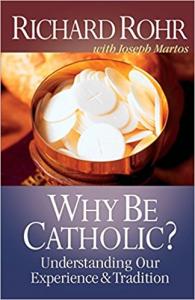
I’ll talk about Richard Rohr first, and then I’ll say a few general things about Catholicism and controversy.
I don’t know Richard well, but I have met him on a couple of occasions, and have heard him speak a number of times. I’ve read several of his books — my favorites are The Naked Now, Everything Belongs, and Things Hidden.
Even though I am small potatoes compared to him, Richard has been warmly supportive of my work — he has endorsed three of my books, and I’m even quoted in his latest book, The Divine Dance!
For all these reasons, maybe I’m not entirely objective. But I’ll try to be as fair as possible in what I have to say here.
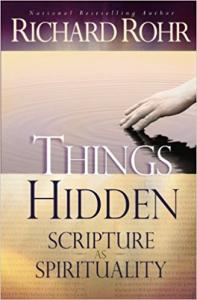
In person, Richard has always struck me as a truly prayerful and humble man. In the words of a friend of mine, who used to operate a Cathedral bookstore (and is not easily impressed by famous authors), he’s “the real deal.” You can tell when an author doesn’t really live by all the stuff he or she says, my friend pointed out, but with Richard, his integrity was very obvious.
Richard is one of the three most well-known and loved of living Christian contemplative authors, at least among those writing in English (the other two being Cynthia Bourgeault and Thomas Keating). His writing is very accessible and down-to-earth, is grounded in the tradition, and speaks equally well to those inside the church as well as outside. He is very honest and speaks very candidly about the foibles or the shadow side of spirituality in general and Catholicism in particular.
Is it okay for Catholics to read Richard Rohr? Yes! In fact, I would encourage Catholics to read his work. But for the very reasons I find Rohr so appealing, others find his work objectionable. Let me explain.
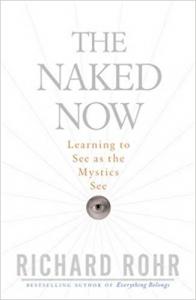
There is a segment of people within the Church whose faith is shaped more by nostalgia for the past than a willingness to grapple with the complexities of the present. In my experience, such people often have a very authoritarian image of God — and of the Church. They see God as a stern judge, and so they believe the Church is supposed to be a flawless expression of his judgment and authority here on earth (and by “the Church” such people typically mean the hierarchy — and especially the more conservative elements of the hierarchy — rather than the entire faithful people of God).
Because authoritarianism is so important to these people, they typically wax nostalgic for the Catholic Church of yesteryear — especially before the Second Vatican Council of the 1960s.
Like all nostalgic people, these folks believe that in the past, the Church was more “pure” — it was authoritative and dealt more firmly with controversy and dissent, unlike today when the Church, in the minds of the nostalgists, has been “compromised” by the “liberals.” Nostalgia, however, is not a good foundation for the spiritual life. Nostalgia is based on a fantasy — a romanticized idea of the past. In truth, however, the good old days typically weren’t nearly as good as we fondly remember them! Nor were they so simple. But when the challenges of the present seem overwhelming, it’s tempting to retreat into an idealized image of a “simpler” past.
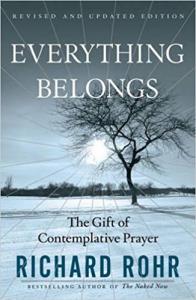
I admire Richard Rohr because he is an honest writer. He is not afraid to talk about the Catholic Church’s failings. He rightly acknowledges that problems like sexism and homophobia are real issues in Catholic culture — matters that the Church often fails to address adequately.
To a nostalgic/authoritarian Catholic, this is the worst kind of heresy — he dares to admit that the Church isn’t perfect!
So over the years, there has been a small but vocal number of Catholics, especially online, who do not merely criticize Richard and his ideas — they attack him.
And Richard is not the only one. In fact, these days the most “notorious” Catholic author, at least here in America, is James Martin, a popular Jesuit writer who recently published a book called Building a Bridge. It’s a very gentle book which calls for greater respect and dialogue between the Church hierarchy and the LGBT community. Sad to say, the authoritarians are incensed that a priest would dare to suggest such a thing. Their attacks have been frequent, and unfortunately, rather vicious (which is to say, unchristian).
Other “hot button” authors include Joan Chittister, Elizabeth Johnson, Hans Kung, and Charles Curran. Nor are controversial authors anything new to the Church: in the twentieth century, Pierre Teilhard de Chardin, Thomas Merton, and Anthony De Mello (all of whom I feature in my book Christian Mystics: 108 Seers, Saints and Sages) have been attacked and denounced, either by church leaders or overzealous critics.
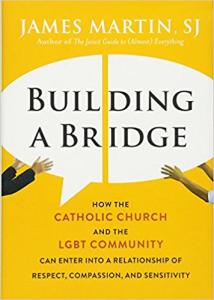
Ironically, the most common reasons some authors get targeted is usually because such writers are honest about criticizing the hierarchy, and/or they are calling for reform particularly in terms of how the Church approaches sexuality and gender, and/or they promote serious interfaith dialogue. For some reason, these are the issues that seem most likely to upset the authoritarians and the nostalgists.
Now, to get to the central aim of the reader’s question: what is the Church’s view on Richard Rohr? Like most Protestants, my reader is probably aware that the Catholic hierarchy for many centuries maintained an “Index” of books forbidden to lay Catholics. But it’s important to bear in mind that the Vatican has not published a list of forbidden books for over 50 years now.
The authoritarians, of course, think there should be such a list, and if any bishop or Vatican official criticizes a particular book or author (or better yet, suggests that Catholics shouldn’t read that person’s works), the authoritarians will attack it as if it were settled dogma that such-and-such author’s works are “forbidden.” But that is nonsense.
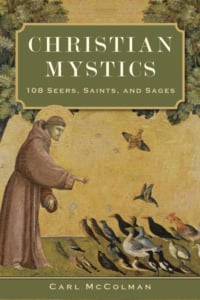
As far as I know, there is no “official” Catholic line on Richard Rohr and his works. Nor should there be. I’d be willing to bet that he has many fans among the hieararchy, and probably has plenty of critics too — just like most other authors.
Since the Church no longer draws up a list of forbidden books, it is incumbent upon the ordinary Catholic layperson to use common sense and discernment when reading any author — not just the controversial ones. As I’ve said before, even the best author can make mistakes, and even the worst author can come up with a good idea from time to time.
So my final word to my reader who wrote the question, and indeed to anyone who has read this far: when you come across a website that “warns” you against the writings of Richard Rohr, or James Martin, or whomever else they’ve decided to attack this week, because such-and-such author is promoting “un-Catholic” or “anti-Christian” ideas, I certainly hope that you will take such invective with a sizable grain of salt. It’s been my experience that such websites/blogs actually tell us more about the psychology of authoritarianism than about the merits (or flaws) of the writers they attack.
Enjoy reading this blog?
Click here to become a patron.
Stay in touch! Connect with Carl McColman on Facebook:




